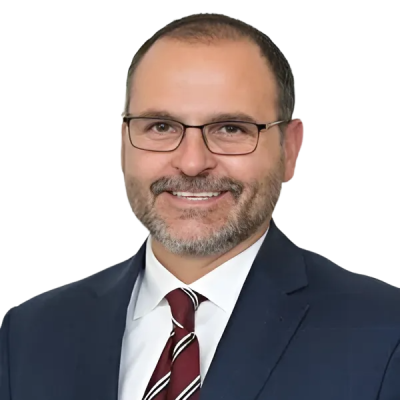Employees who are injured or disabled at work due to an accident or occupational conditions are entitled to appropriate medical care through workers’ compensation. However, it is not uncommon for employers to argue that their workers are entitled to less compensation than is actually the case. Learn more about your case, and have an experienced advocate for workers’ compensation from Diefer Law Group answer your questions. Call (888) 301-7795 to schedule a free consultation to discuss your case.
What Kind of Medical Costs Does Workers’ Compensation Cover?
When an accident or health condition is covered by workers’ compensation, the employer’s insurance pays for all the associated medical expenses. Physicians and medical facilities are legally not allowed to bill employees who suffered a work-related illness or injury that workers’ compensation should cover.
Costs covered by workers’ compensation can include:
- Medical supplies
- Medication — this will be generic drugs, unless the employee is specifically prescribed brand name medication
- Physical therapy
- Transportation costs to medical appointments
As well as receiving attention from a physician, the injured employee may receive treatment from a psychologist, psychiatrist, or chiropractor. All medical professionals who provide treatment must adhere to Medical Treatment Utilization Schedule (MTUS) regulations.
How Long Do I Have to See a Doctor After a Work Injury in California?
Employees must see a doctor and report the injury to their employers within 30 days to avoid losing the right to receive workers’ compensation. However, it makes sense to receive medical attention sooner than this for several reasons. Firstly, obtaining medical treatment as soon as possible can result in a faster and fuller recovery with fewer complications. Secondly, receiving medical treatment quickly after an injury or illness in the workplace can possibly lead to workers’ compensation covering more of the treatment the employee requires.
Who Will Determine My Medical Treatment Options?
Before an employee can receive medical care through workers’ compensation, a physician must recommend treatment. Employees may have predesignated a physician to this role before the injury. In this case, the doctor will usually be the employee’s primary care physician, but the doctor may be a referral from another employee who was injured, the employee’s union, or the employee’s attorney. Employees who predesignate a doctor are able to switch physicians at any time, simply by writing to the insurance company to inform them of the change.
Employees who did not predesignate a doctor will choose a physician either from the medical provider network (MPN) their employer or insurer has selected or from the health care organization (HCO) the employer belongs to. If neither of these apply, the claims administrator will choose the doctor.
What Will the Physician Consider When Assessing Care Options?
The physician will determine what kind of care the employee should receive including some of the following:
- What medications are necessary.
- Whether the employee requires physical therapy.
- Whether a general physician can treat the injury or if the employee needs to see a specialist.
- How much time (if any) the employee needs to take off from work (called an off-work order) and whether there need to be any restrictions to tasks the employee may do during the recovery period (called a limited-duties or modified work order). If neither of these apply, the employee will receive a return-to-work order.
- Whether the injury resulted in any permanent disabilities.
- What kind of ongoing care could be necessary.
Once the physician has recommended treatment to the employer, the claims administrator will decide whether to approve the treatment under the company’s utilization review (UR) program. A qualified medical evaluator (QME) will evaluate any disagreements.
Workers’ Compensation Delaying or Complicating Medical Treatment
The problem with the process for receiving workers’ compensation in California is it can take a long time to receive approval for care. It takes longer still if there are any disputes, such as about the type of treatment or the qualification of the employee to receive workers’ compensation benefits. If you need support with the workers’ compensation process, talk to an attorney at Diefer Law Group to learn more about your options.
Who Pays for My Health Insurance While on Workers’ Compensation in California?
Employees receiving workers’ compensation in California still need to pay their regular health insurance premiums. Although they may not currently be working, they are still employed. This means that, although they are pursuing a claim, they will receive all the same health benefits for medical care unrelated to the injury — provided they pay as normal. The employer should also continue to make the same contributions.
The exception to this is if the employer is unable to accommodate employees’ work restrictions and must place the employee out of work. Employees in this situation will no longer receive a paycheck; instead, they will gain workers’ compensation checks on a weekly basis from the insurance company. Employees in these situations are on temporary total disability (TTD). They should ask their employers how this will impact their health insurance to ensure they retain some kind of coverage.
Does a Workers’ Compensation Settlement Affect Medi-Cal?
A worker will only qualify for Medi-Cal if their annual earnings put them at or below 138% of the federal poverty level. This is $18,755 for a single person and increases by approximately $6,514 for each additional family member. The Department of Health Care Services (DHCS) provides a chart where you can check if you qualify according to your income level. It is also important to note that there are other criteria that may make you eligible for Medi-Cal, no matter your income level — the DHCS also provides this information.
Eligibility for income-based Medi-Cal is calculated according to your modified adjusted gross income (MAGI). This includes most of your earned and unearned income, including unemployment compensation. However, it does not include workers’ compensation. Therefore, a settlement of any size will have no effect on Medi-Cal.
Contact an Experienced Workers’ Compensation Attorney To Learn More About Medical Treatment
Employers often try to offer less workers’ compensation and medical treatment than the employee deserves after an accident occurs or after the employee develops a health problem due to working conditions. Request a free consultation to discuss your case with Diefer Law Group by calling (888) 301-7795.








